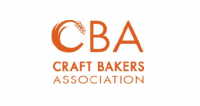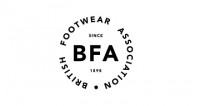Working safely during COVID-19 in shops and branches
Posted on in Business News , Cycles News
The government has recently issued new guidance to help businesses in the UK to get back up and running and workplaces operating as safely as possible. The guidance is broken down according to type of workplace rather than sector, with eight sets of guidelines in total, so it is important that businesses understand that they may need to look at several publications according to their particular circumstances.
IRC member ACS has summarised the specific guidance for shops on working safely. The full Government guidance on working safely during COVID-19 in shops and branches can be found here.
Thinking About Risk
- All employers should carry out a Covid-19 risk assessment. You could use the Health and Safety Executive Shop Risk Assessment Tool.
- As part of your assessment, consider whether any employees are especially vulnerable to Covid-19.
- Share the results of your risk assessment with employees. Display this notice in shops to demonstrate compliance.
Who should go to work?
- All employees should work from home, wherever possible.
- Clinically vulnerable employees who cannot work from home should be offered the safest possible on-site roles, if the level of risk is acceptable. Clinically extremely vulnerable employees must remain at home.
- Consider the impact of protected characteristics on level of risk for employees, making reasonable adjustments where necessary, so all employees are treated equally.
Social Distancing at Work
- Follow social distancing guidelines to keep 2 metres about wherever possible.
- Where social distancing guidelines cannot always be met, take mitigating actions where possible. For example, increasing handwashing and installing screens at tills.
- You could also; introduce floor markings and signage, minimise contacts around transactions and use outside spaces for employee breaks to promote social distancing.
Managing Your Customers, Visitors and Contractors
- To minimise contact you could limit the number of customers in store and implement queue management or one-way flow systems.
- In-store cafes should continue to be closed unless selling food for consumption off the premises.
- You should provide clear signage and guidance on social distancing and hygiene policies on arrival.
Cleaning the Workplace
- Ensure air conditioning systems do not reduce ventilation levels during lower occupancy periods.
- Frequently clean objects and surfaces that are touched regularly and workspaces at the end of shifts.
- Provide hand sanitiser and regular reminders and signage to maintain hygiene standards.
PPE and Face Coverings
- Do not encourage the precautionary use of PPE, which is extremely limited for providing additional protection.
- Face coverings (not face masks) can be marginally beneficial as a precautionary measure for infected individuals who are asymptomatic.
- Employees cannot be required to wear face coverings. If used, face coverings should be washed daily.
Workforce Management
- Create distinct groups of workers to minimise the number of contacts each colleague has.
- Minimise person-to-person contact during deliveries and minimise contact during exchange of documentation.
- Clearly communicate changes in workplace policies and procedures, avoiding face-to-face interactions where possible.
Inbound and Outbound Goods
- Consider whether the frequency of deliveries can be reduced by ordering in larger quantities less often.
- Where possible, have a single colleague load or unload vehicles or using consistent pairs of colleagues where required.
- Encourage drivers to stay in vehicles during the exchange of goods.





















